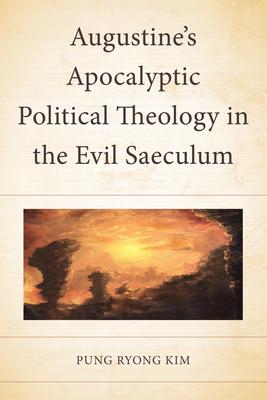Augustine's Apocalyptic Political Theology in the Evil Saeculum investigates Augustine's apocalyptic political theology under the premise that he perceived the saeculum, or this age, as evil. Augustine views the saeculum as wicked because of the activity of the devil and demons. For Augustine, the devil perverted our social life and politics by mediating the false collective memory of the created world, social life, and politics through media, such as various religio-cultural liturgies and literary works. In particular, the demons reinforced Roman citizens' amor sui, amor laudis, and libido dominandi by employing pagan rituals and literature that mediated the collective memory of the imperial period, justifying the existence and expansion of the empire. As such, this book explores the socio-political implications of Augustine's demonology.

Augustine's Apocalyptic Political Theology in the Evil Saeculum
Augustine's Apocalyptic Political Theology in the Evil Saeculum investigates Augustine's apocalyptic political theology under the premise that he perceived the saeculum, or this age, as evil. Augustine views the saeculum as wicked because of the activity of the devil and demons. For Augustine, the devil perverted our social life and politics by mediating the false collective memory of the created world, social life, and politics through media, such as various religio-cultural liturgies and literary works. In particular, the demons reinforced Roman citizens' amor sui, amor laudis, and libido dominandi by employing pagan rituals and literature that mediated the collective memory of the imperial period, justifying the existence and expansion of the empire. As such, this book explores the socio-political implications of Augustine's demonology.